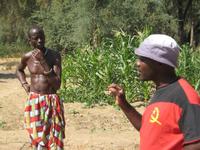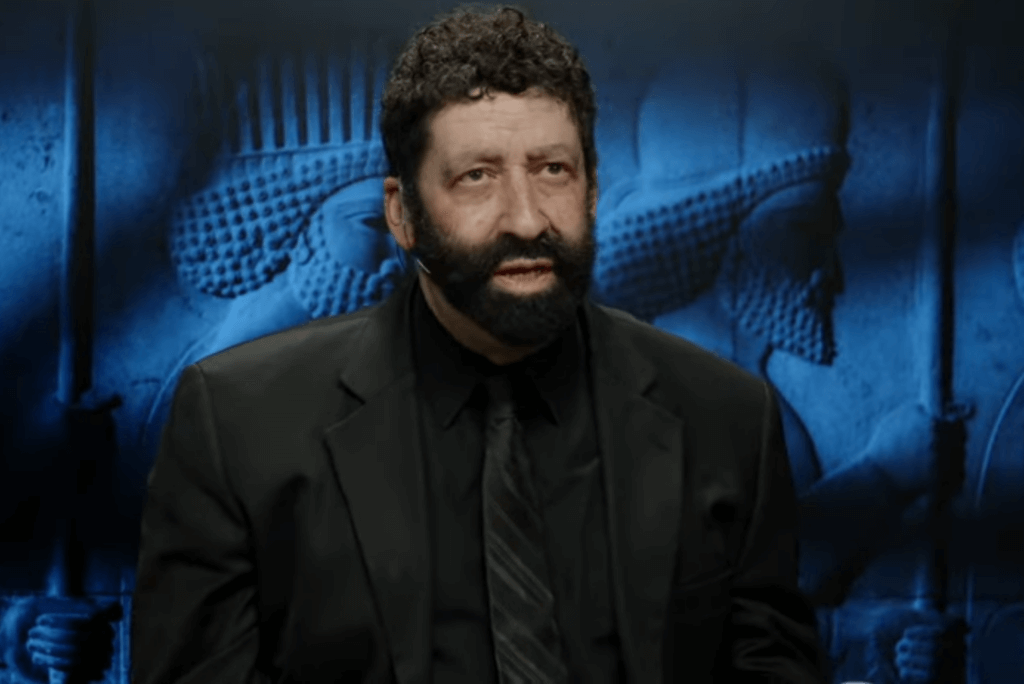 Survival in the southwestern corner of Angola is tough. Rocky hills and huge baobab trees litter the landscape. The land is stony and arid, and the low rainfall and intense heat means that few crops grow. The scarcity of water and vegetation means that the population remains low. Most people survive through a nomadic lifestyle, leading their cattle from place to place in search of water.
Survival in the southwestern corner of Angola is tough. Rocky hills and huge baobab trees litter the landscape. The land is stony and arid, and the low rainfall and intense heat means that few crops grow. The scarcity of water and vegetation means that the population remains low. Most people survive through a nomadic lifestyle, leading their cattle from place to place in search of water.
The challenge to survive in such a barren land has created tribes like the Mukubal. Nomadic cattle herders, they are tall, strong, and proud; warriors ready to defend their cattle. Living isolated from the cities they have remained virtually illiterate, and almost totally untouched by Christianity.
Sebastian first heard of the Mukubal in 1997 when he was working with a Youth With A Mission team amongst another of Angola’s unreached tribes. He started to research the need two years later, and discovered that a group of some 20,000 Mukubais people lived in an area west of the city of Lubango. No other missionaries were working amongst them, and there were no known Christian believers. The few churches that had tried working in the area found the Mukubal totally resistant.
It took three years for Sebastian to get permission from government and local officials to move into the area. It took him even longer to win the trust of the Mukubal themselves. Seeing the pride they had in their language and unique culture, Sebastian spent another four years as a learner. Living on his own on the edge of their territory he dedicated himself to study. Slowly, over time, he learned the language and earned their trust. People invited him to their gatherings, and he began to understand their animist worldview and many rituals.
One year ago Sebastian married Kami, another Angolan YWAMer. Now they are a team of two, and have begun using chronological bible storytelling to introduce Jesus amongst the Mukubal. The Mukubal live in family clusters, with several small grass or mud huts built inside a kraal, with a thorny fence keeping wild animals away from their cattle. Several times a week Sebastian visits different kraals, sitting with each family, telling stories, and using visual story boards.
People are becoming increasingly interested in Sebastian’s teaching, and whole family clans sit together openly discussing his beliefs. As less than 1% of the people are literate there is a strong felt need to learn to read. Sebastian and Kami have begun to work alongside some Mukubal children, who have started attending a school in the local town. In other parts of Angola literacy work and education has provided an entry point for the gospel, along with health care.
The language remains unwritten, and Sebastian hopes that as his team grows, a script will be created. For the last decade Sebastian has been a pioneer, surviving in a tough environment, living as a learner, winning the trust of the people. A Mukubal man recently told him, “we have seen changes since you came here. Now there is less violence because of your presence. It would be wonderful to have other people like you here.”
A small number have responded to his message and Sebastian has found an openness to discuss and learn. He says that, “the door is now open door into the Mukubal people”. Sebastian hopes that partnerships will develop with other missions, like Wycliffe International, so that specialists can begin work on Bible translation. He hopes too that as people hear his story they will be drawn to pray for the Mukubal people.
In the dry season the few streams quickly run dry. Each day people dig down into the river sand in search of water. The holes grow steadily deeper as drought continues. Sebastian sees a parallel with the Mukubal themselves. “People here have been thirsty for water, I realized that there is also a spiritual drought in their lives. People are thirsty for God’s Word. The answer is the same. We need to dig to bring water to them. When I first met Mukubal people years ago I prayed for them, but God told me I was to be the answer. It has been very difficult, and I was always making excuses, but God said ‘Go!'”
Sebastian and Kami are determined to continue living in this remote location until a Church is established among the Mukubal people. They need others to help them, citing the words of Jesus that, “the harvest is great but the workers are few.”
See an error in this article?
To contact us or to submit an article






















